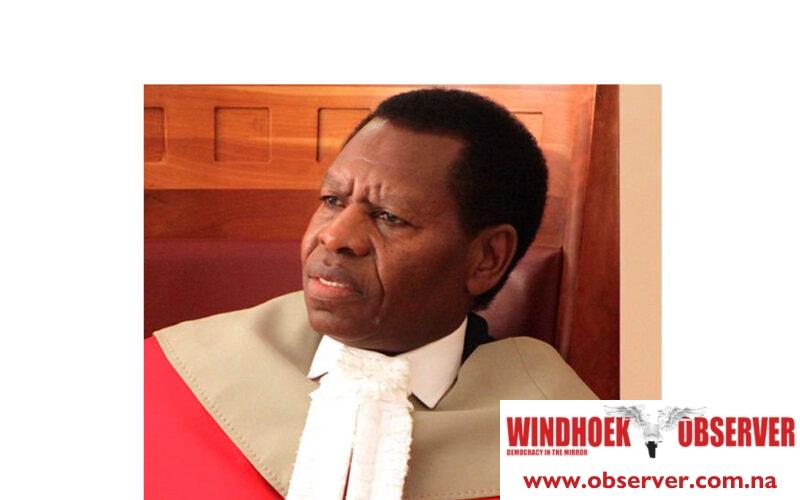Hertta-Maria Amutenja
The Supreme Court has recorded a noteworthy 93.5 percent case disposal rate in 2023.
Starting from the beginning of last year until late December, out of the 98 matters enrolled, 93 were not only heard but also saw judgments delivered, emphasising the court’s commitment to expeditious resolution.
Chief Justice, Peter Shivute, while speaking at the official opening of the legal year this week, highlighted this achievement. Shedding light on the court’s dedication to enhancing diversity on the bench.
Shivute said the appointment of three accomplished women, Lady Justice Hannelie Prinsloo, Lady Justice Esi Schimming-Chase, and Lady Justice Rita Makarau, not only adds female representation but also enriches the breadth and depth of judicial insight at the summit of the legal system.
Shivute further emphasised the Supreme Court’s commendable efforts in expanding its capacity to hear more cases, operating two courtrooms concurrently during each term. This operational adjustment led to a substantial increase in the number of cases heard, effectively reducing the backlog by a significant margin.
The surge in appeals, witnessing a 59 percent increase compared to the previous year, indicates a growing demand for judicial services.
Despite the rising trend and increased workload, the Supreme Court managed to uphold its high standards in the disposal rate of cases. Between January 1 and 21 December 2023, the court demonstrated an impressive 93.5 percent case disposal rate, as 87 out of 93 cases were effectively resolved.
However, Shivute also raised concerns about a recurring pattern where some litigants, particularly legal practitioners, exhibit a disregard for court rules. This trend he said has led to the dismissal or removal of cases from the Court roll, emphasising the need for litigants and practitioners to familiarise themselves with court rules.
“In recent years, a concerning pattern where some litigants more especially legal practitioners exhibit a recurring disregard for the court rules. This ongoing trend has frequently resulted in the dismissal or removal of cases from the roll. Litigants and more especially, legal practitioners must make an effort to familiarise themselves with the court’s rules to uphold the efficiency and integrity of our judicial processes,” said Shivute.
President Nangolo Mbumba echoed the importance of a collaborative spirit between the Executive, Legislature and Judicial branches. Addressing the need to avoid unwarranted pressure or influence on the judiciary, Mbumba urged Namibians to refrain from actions that could be interpreted as interference with the work of the Judiciary.
Mbumba further emphasized that the rule of law is crucial for the preservation and advancement of democracy, national unity, and socio-economic development.
“The rule of law is an important constitutional anchor of our democracy. It is a nexus that enhances social development using law, as an instrument of change. Therein lies the transformative function of the Judiciary and the broader legal profession, albeit in two different roles. The Judiciary plays an influential role, as custodians of our society’s core values and the rule of law must therefore be led by men and women who hold themselves to the highest ethical standard of conduct,” said Mbumba




